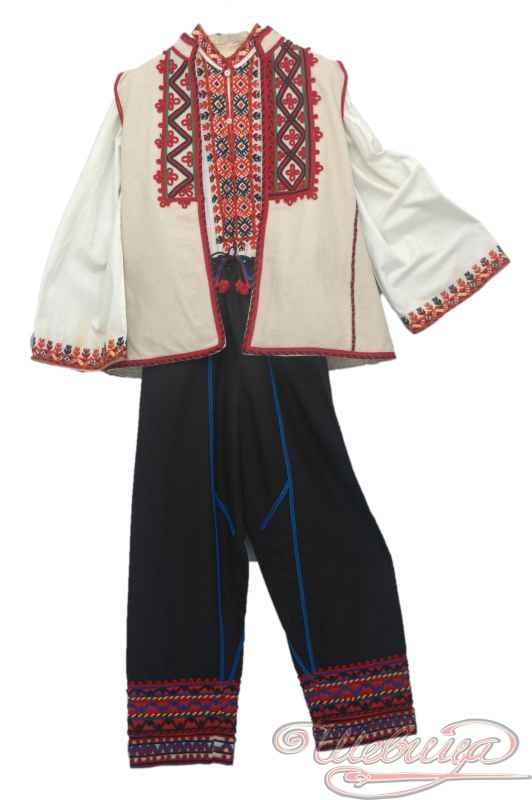Our country is small in terms of territory, but it gathers seven folklore regions, each unique for itself with its own specific features in terms of clothing, music, songs and dances.
Severnyashka folklore region covers most of the Danube plain and the northern part of the Staroplaninska range. In the east it borders the lands of Dobrudja, in the west - with Serbia, in the north - with the Danube river, and in the south - with the Pre-Balkan and the Main Staroplaninska chain. Since it covers a large territory, the Northern folklore region is divided into three main parts: the western part, in which the cities of Vratsa, Montana, Vidin and Lom are located; middle northern part, which includes the cities of Lovech, Pleven, Gabrovo, Veliko Tarnovo and Svishtov and eastern part with main centers - Shumen, Razgrad and Ruse.
Dances
The folk dance in Northern Bulgaria is extremely rich and diverse. We are witnessing a whirlwind play related to breaking away from cares, everyday life, rural work and indulging in joy and gaiety, freedom of movement and ease of performance. Through dancing, the Bulgarian seems to want to separate himself from the earth and fly.
You can read more about our native folklore, holidays and customs, clothing and embroidery in the collection
Folklore collection "Once upon a time - manners and worldview of the Bulgarians"
A typical northern dance is characterized by squats, twists and calls, with the movements mainly focused on the legs. There is a small step, light movements and a fine, even springing of the legs and shoulders. Most of the dances are mixed. A very characteristic feature is the wide and free waving of the hands, as if the dancers are not stepping, but "flying". The characteristic size for the region is 2/4 (with fine steps). In most of the dances, the players hold hands, but there is often also a grasp of the belt. Almost every choro starts off slow and calm and then picks up speed. If the performance is long, the dancers return to the initial calm and wide movements to rest.
Popular people
Daichovo horo, Paidushko horo, Elenino horo, Gankino horo, Dunavsko horo, Chichovo horo, Circassian horo, Kulsko horo, Shira, Gamzovyana, Izruchanka, Torlashko horo, Serbo-Veselashko horo, Small Wallachian horo.
Musical folklore
In Northern Bulgaria, it is extremely rich and diverse. One of the most characteristic are the Hajdush epic songs, which were simply born in the Balkans. Texts about mythical creatures from Bulgarian folklore - dragon, llama, etc. - were often performed. A worthy place is also occupied by harvest songs (with characteristic calls), wedding songs (reflecting the entire wedding ritual), wedding songs, ritual and table songs. The song folklore of the Northern region is characterized by unison performance, which is usually in a narrow tonal volume. Melodies are often out of size or in uneven sizes.
Popular songs
Deer, girl, My bleating lamb, Come together little girls, Marie, girl, The butterfly walked, Grandma planted onions, Your wrist fell, Deno, Little girl picked a flower, Nedo le, Nedke beautiful, Violet, violet, Danube flows, strawberry, Yanka sat down.
Musical instruments
They are: the duduk, the shepherd's whistle, the ocarina, the gudulka, the kaval and the bagpipe. Among them, the duduk is the most characteristic of the region. European wind and string instruments are also very characteristic of this area, which are an indispensable companion at weddings and outdoor dining.
Folk rites and customs: Lazarki; Charging (Dailada); Trap wedding; Butterfly; German; Rusalii – Kalushari; Chasing a kite.
Folk crafts: abbey (Tarnovo, Lovech, Gabrovo); Mutafchiism (Sevlievo); turning (Gabrovo); wood carving (Grass); copper mining (Vidin, Teteven, Tarnovo, Gabrovo, Shumen); pottery (Berkovitsa, Troyan, Gabrovo, Teteven); goldsmithing (Vratsa, Chiprovtsi); carpet weaving (Chiprovtsi); Cutlery (Gabrovo).
Costumes: female – double apron costume; men's white dress costume.
© 2024 Iliana Dechkova

